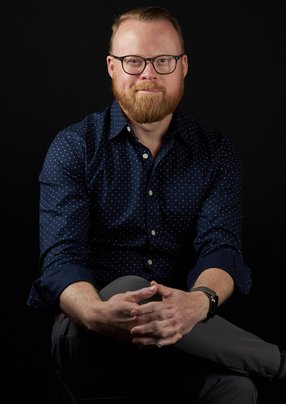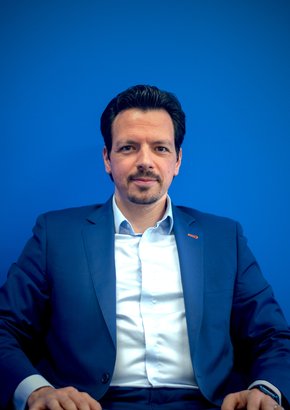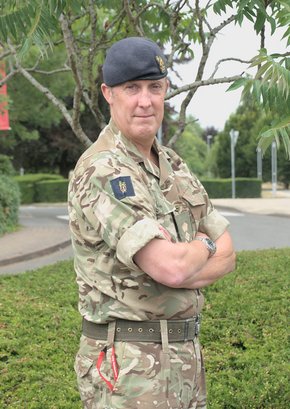
Mike J. Walker
Executive Director, Global Health & Life Sciences Strategy at Microsoft

Introduce yourself and your role at Microsoft
I’m Executive Director of Strategy, Health and Life Sciences at Microsoft. In this role I lead our positioning on pharmaceuticals, med-tech and biopharmaceutical supply chain and smart manufacturing, and oversee the solutions we provide to the marketplace.
The role is about being a trusted advisor to our customers as well. Mine are business-led conversations. Technology is always part of that conversation, but it’s about making the pivot point that is going to bring the highest level of strategic value and relevance to the client’s executive teams.
I partner with what we call business decision-makers – essentially the C-suite people within pharma organisations. It's really to partner with them in a material way.
I work directly with them to help them understand their digital initiatives, how best to partner with Microsoft, but also we are a partner-led company, and so it's not just about Microsoft, it's also about the ecosystem of partners around us that add to the value proposition.
Tell us a little of your professional background
I worked for a local business incubator aged 16, building computers in the mid- to late-nineties, and then evolved that to programming. So before I stepped foot into a university, I had a fully rounded perspective on the computer industry.
After education, I worked in financial services, which forced me to understand the importance of risk management and how most decisions a business will make will be based on the level of risk that they're willing to take.
I also spent time at Gartner, where I was VP of Technology Innovation and CTO Strategy. That taught me that you don’t come in as a consultant but as a trusted advisor. A consultant has a fixed set of activities they're responsible for, whereas an advisor typically isn’t attached to a body of work or an initiative, but to a function, or to an executive, like the CTO.
I have had the good fortune of having multiple roles at Microsoft where – like my role in healthcare – I ran our financial services business, working with our product teams, and directly with customers and standards bodies.
I was also the one of the very early founders of our Microsoft Supply Chain Platform technology that was just released a few months ago.
What’s the most challenging aspect of your job?
The dynamic nature of how different companies solve big industry problems. When you peel back the onion you find each has subtly different business drivers, different cultures, different personalities and leadership styles. It requires you to employ a level of emotional intelligence to your approach. ‘This is the right answer’ is something that never flies. You have to let the customer drive the discussion.
And there to shepherd them through the process – almost like a counsellor
Who inspires you?
I've had many mentors along the way. But a luminary early in my career was Bill Gates. I had the opportunity to meet him a few times. I had the good fortune back in 2006 to have Gates take some of my material and use it in a keynote at one of our conferences.
I was on cloud nine. He's on a different level than anybody I've known. To this day, he's an inspiration for how to build a tech company and be competitive.
Best advice ever received?
Never let passion get in the way of making progress. When I was working in finance, a CIO pulled me into his office one day, and said: “Mike, I know you love what you're doing but you’re 10 steps ahead of everybody else. If you want to take people with you, think strategically, but act tactically. And so now I always have a mental framework of what the macro journey looks like but am mindful to give people bite-sized chunks of the problem to solve along the way.
Read the full story HERE.


- Microsoft in Japan: $2.9bn Investment to Boost AI & CloudCloud & Cybersecurity
- Tech Leaders Launch AI Consortium to Upskill WorkforcesAI & Machine Learning
- Oracle Database@Azure Expansion: Committing to the CloudCloud Computing
- How Microsoft Supports Michigan Medicine’s ModernisationCloud Computing
Featured Interviews
We’ve built some unique features into our insurance program specifically because we’ve listened to courier partners in every country






